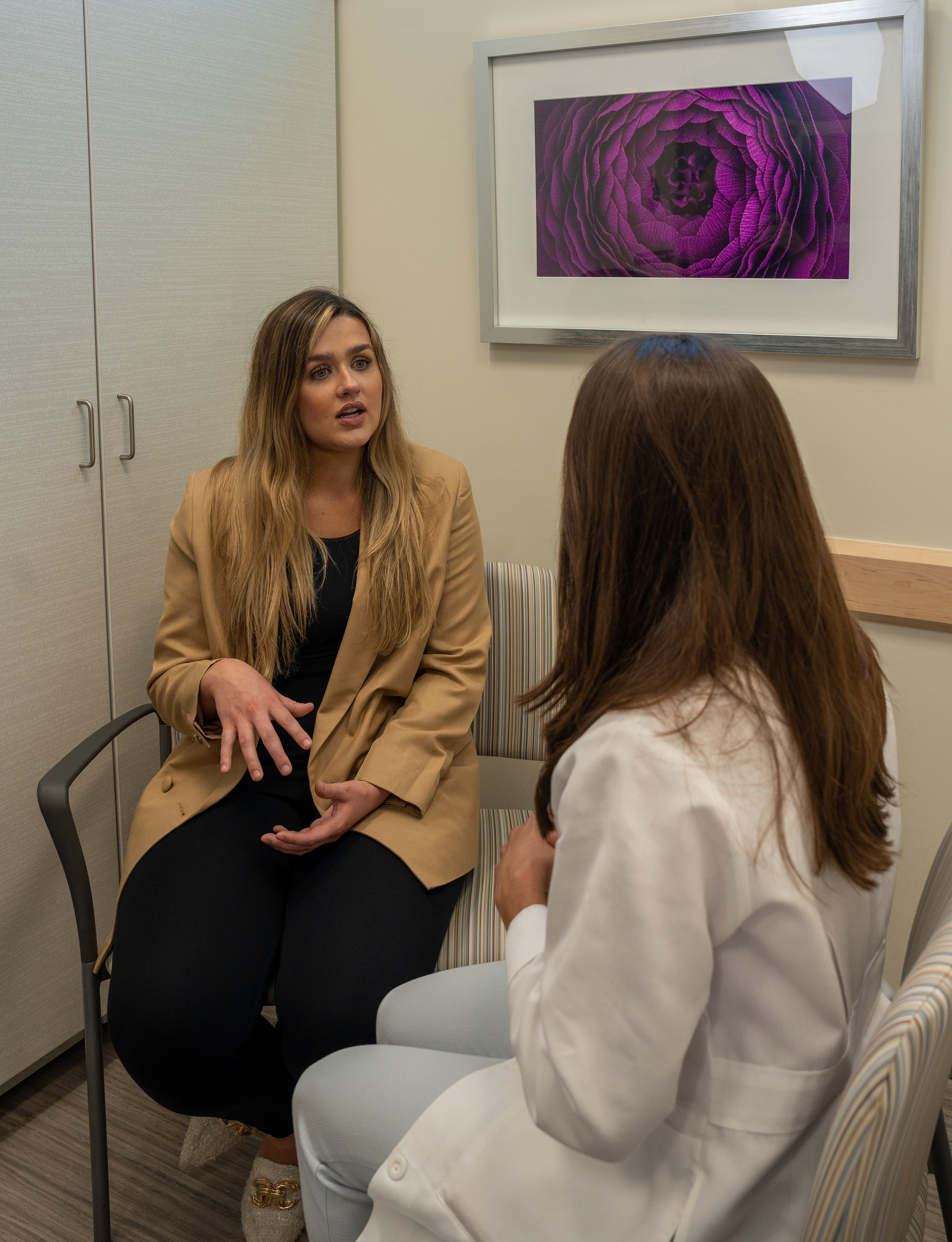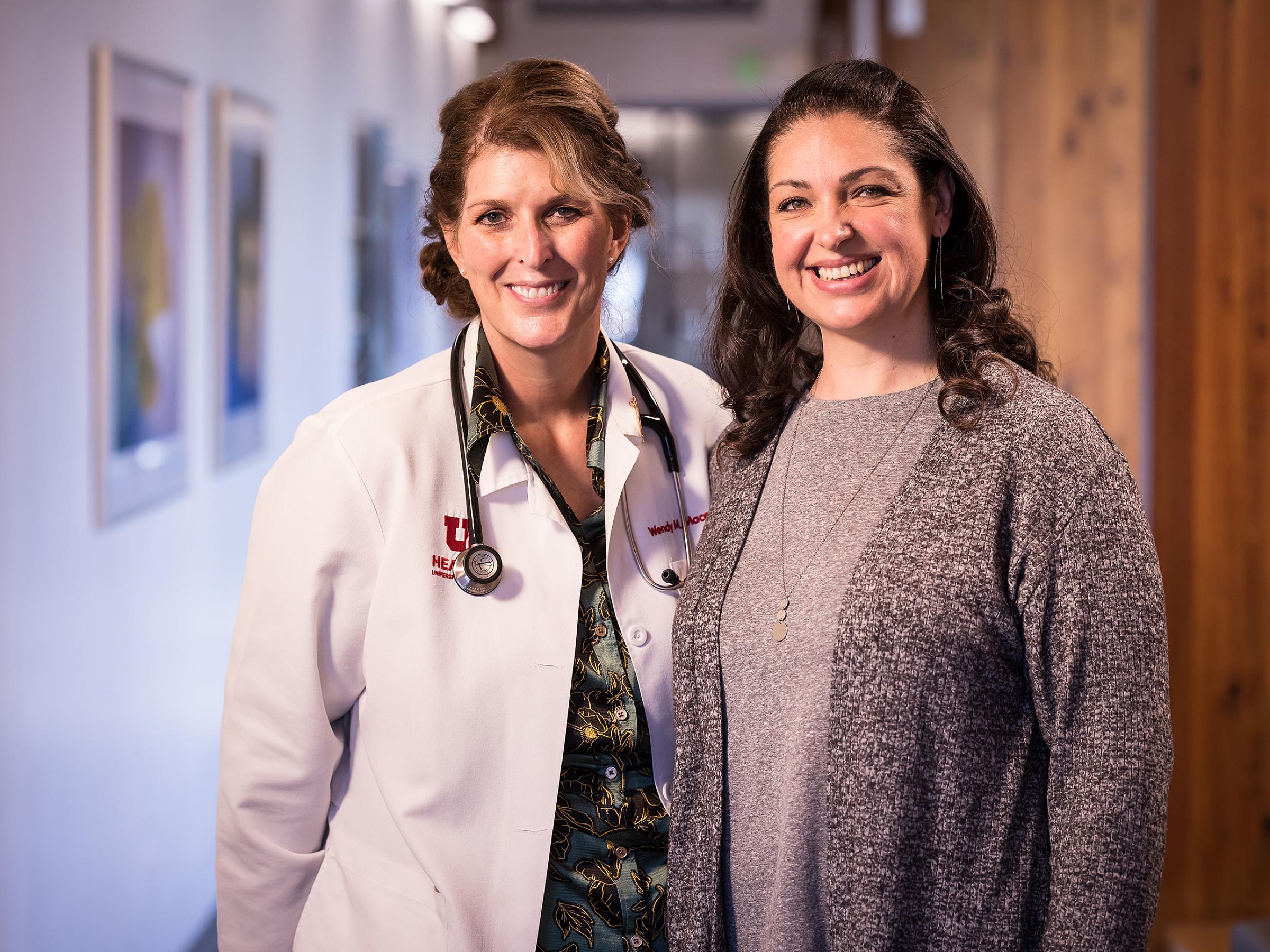What Is Preventive Care?
Most people think of scheduling an appointment to see a doctor when they are sick, but not everyone realizes how important it is to see a primary care provider (PCP) for preventive care even when you are feeling healthy.
A primary care provider could be:
- a physician (MD or DO), or
- an advanced practice clinician (APC) who is either a physician assistant (PA) or a nurse practitioner (NP).
Preventive care is important for all patients to maintain better health, and usually begins with an annual check-up. During this visit your primary care provider will:
- get to know you, and learn about your health and family history;
- screen for current diseases;
- discuss medications and supplements you take;
- check for future disease risks;
- discuss recommended screenings based on your age, gender, family history, and risk factors;
- update your vaccinations and immunizations;
- discuss healthy lifestyle and challenges, such as diet and exercise; and
- get a baseline for your health to improve care in the future.
Your provider can tell you if they think you should come more often than once a year.
Regular visits with your primary care provider create a baseline for your health so you can identify changes in your health or your body that might not be normal. Schedule an appointment right away if you experience any of the following:
- A lump you can feel anywhere in your body
- A cough or fever that does not go away
- Unusual aches or pains that do not go away
- Changes in your skin or sores that don’t heal
- Losing weight without trying
- Changes in your stool or blood in your stool
Identifying potential diseases early on (when you first experience symptoms) can sometimes provide more options for treatment and a better outcome.
Managing Chronic Disease with Your Primary Care Providers
One of the most important reasons to see your doctor or APC regularly is for help avoiding or managing chronic health conditions, including:
Your primary care doctor or APC can identify whether you are at risk of developing these or other diseases. If you already have one or more of these conditions, your doctor will help you manage them for better health.
If you are receiving treatment from one or more specialists, your primary care provider can be instrumental in working out a care plan that balances all considerations and helps you achieve your health goals. Your doctor or APC can also discuss lifestyle changes that will reduce your chance of developing a chronic disease or help manage an existing disease, such as diet and exercise.
Your primary care provider will review your medications and reconcile what you are taking to avoid unnecessary side effects or dangerous medication interactions. This is especially important if you are seeing one or more specialists, because those other doctors may not be aware of all the medications you are taking. Your PCP can review all your medications and work with specialists if necessary to change or modify the type, frequency, or dosage of medications to keep you safe and healthy.
Studies show that patients with one or more chronic health conditions who don’t see a primary care provider for regular check-ups go to the emergency room or hospital more often. Seeing a doctor or APC for preventive care and check-ups can also save you money, because staying healthy and keeping diseases under control is a lot less expensive than going to the emergency room or hospital with complications from a chronic condition.
Mental Health
Not everyone is aware that primary care doctors have training and education to help with mental health conditions like depression and anxiety. At your annual checkup, your doctor may ask you to fill out information about whether you are experiencing depression and anxiety. If you are, he or she can help you manage these conditions with medication and other treatment.
For patients whose mental health needs go beyond what a primary care doctor can treat, they can refer you to a psychiatrist or counselor and coordinate your mental health and physical health care moving forward.


Preventive Care for Women
Women should schedule an annual checkup with a primary care provider (a family doctor that specializes in women’s health or an OB/GYN). During these visits, you can discuss health concerns and questions and get annual screenings recommended for women, including:
- Heart health: Your doctor will order tests for lipids, LDL and HDL cholesterol, triglycerides, blood sugar, and blood pressure.
- Breast health: Women should have regular breast exams and mammograms. Check with your primary care provider for current screening guidelines, especially if you have family history of breast cancer or other risk factors.
- Skin health: An annual skin exam and head-to-toe checks help your doctor keep an eye out for new or changing moles.
- Cervical health: Pap smear tests should be done regularly. Ask your doctor for more information about how often you should have this test done.
- Bone health: This includes screening for bone density and osteoporosis with DEXA scan.
- Colonoscopy: Women should have a colonoscopy every 10 years starting at age 50 (your doctor may recommend starting screening earlier or getting a colonoscopy more often if you have family history of colon cancer or other risk factors).
If you have trouble finding time to get in for a checkup, University of Utah Health offers monthly 5 for Life events that include a healthy breakfast, chair massage, nutrition education, and all of the appropriate tests and screenings above (except colonoscopies, which must be scheduled separately), all in just two hours. These events take place at our clinic locations all along the Wasatch Front to make it easy for every woman to get annual screenings.


Preventive Care for Men
Men should schedule an annual physical with the doctor to discuss their overall health and get recommended screenings for:
- blood pressure,
- cholesterol,
- heart disease prevention,
- diabetes,
- osteoporosis,
- colorectal cancer,
- prostate cancer, and
- testicular exams.
Some screenings are only recommended for men in a certain age range or with specific risk factors, so talk to your primary care doctor about which ones are appropriate for you.


Preventive Care for Children
Preventive care is also important for children, especially if your child is managing a condition like ADHD, obesity, or diabetes. Even children who are not managing these conditions should see a doctor once a year for:
- annual check-ups (well-child checks),
- developmental screenings,
- hearing screenings,
- vision screenings, and
- immunizations.


Preventive Care for Elderly Adults
As you age, you are at higher risk of developing chronic health conditions. Preventive care for older adults will often include the appropriate screenings listed above for men or women, as well as screenings for:
- dementia and memory loss,
- depression screening,
- falls risk (balance issues),
- hearing loss,
- vision loss,
- incontinence,
- insomnia, and
- osteoporosis.
Staying Healthy
In addition to seeing your primary care doctor regularly for check-ups, there are everyday steps you can take to maintain your health:
- Exercise regularly – Most healthy adults should exercise for 30 minutes at least 5 days a week. Talk to your doctor to get recommendations for how much and what type of exercise is best for you.
- Eat a healthy diet – Focus on eating vegetables, fruits, lean protein, whole grains, and low-fat or non-fat dairy. Reduce or eliminate high-fat foods, processed foods, and red meat in your diet.
- Maintain a healthy weight – Talk to your doctor about what a healthy weight is for you and to get help losing weight if necessary.
- Don’t smoke or use tobacco – If you need help quitting, talk to your doctor.
- Drink alcohol only in moderation (or not at all) – Moderation is usually defined as one drink per day for women and two per day for men.
- Avoid using illegal drugs.
Schedule an Appointment for Your Annual Check-Up
If you haven’t been in to see your doctor or APC for an annual check-up, schedule an appointment today to get in for these important preventive care visits. If you don’t have a primary care provider, we are always accepting new patients. You can find a doctor on our website or call today for help finding the right doctor to meet your health needs.
Hear From Our Patients
Patients and Primary Care Providers: A Partnership For Life
"Primary care is the heart of medicine,” says Wendy Macey, PA-C, a family medicine primary care provider (PCP). “It’s the bedrock of where health care comes from. Amenthist Gibbs, a patient of Macey’s for nearly a decade describes her partnership with Wendy Macey.




